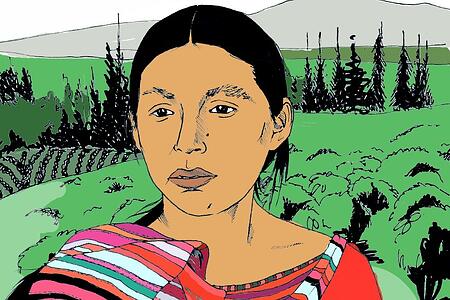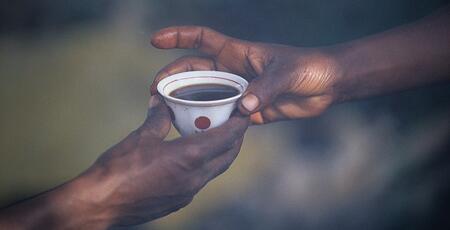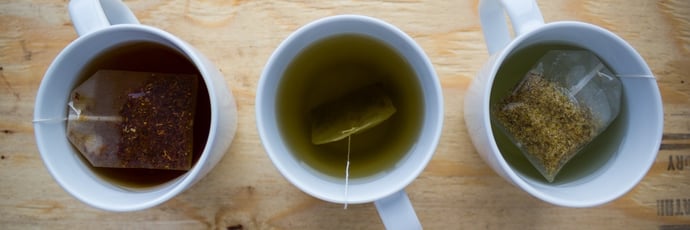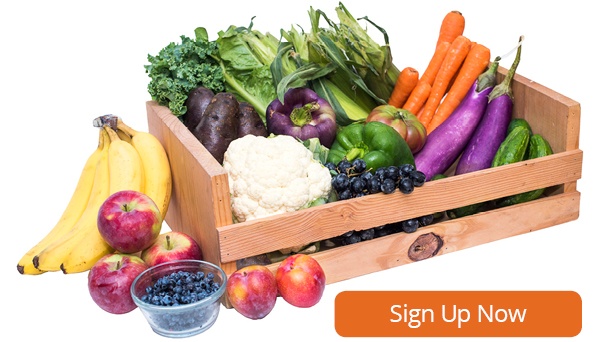October is Fair Trade Month - The concept of Fair Trade can be traced back to 19th century Europe. Gaining commercial success in the 90's with a labeling program, the Fair Trade movement has become fragmented and confusing. In this post we explore the history, why all Fair Trade labels are not the same, and why business pioneers in the movement like Equal Exchange and Deans Beans are focusing less on labels and more on business transparency.
What Is Fair Trade?
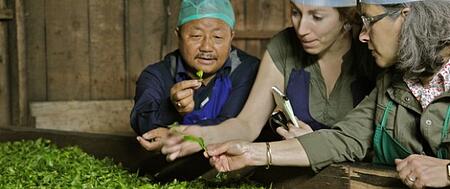
Fair Trade is an idea built on a very simple but powerful concept that small farmers and artisans around the world deserve an equal playing field; that everyone should have the opportunity to benefit from globalization.
Rather than exploiting workers and the environment in the hopes of driving down costs and increasing profits, Fair Trade producers and purchasers voluntarily adopt a set of business practices based on equality and mutual respect. In general, Fair Trade principles include:
- Increasing regular wages for small-scale farmers, farm workers, and artisans.
- More equally distributing economic gains among all stakeholders.
- Supporting democratically owned producer organizations.
- Promoting labor rights, collective bargaining, and the observance of international child labor laws.
- Connecting consumers with producers who use sustainable farming methods and ensure safe working conditions.
Behind the Fair Trade Movement
In the 1970's and 1980's, a group of Alternative Trade Organizations (ATOs), based mainly in Europe formed to challenge the existing model of international trade, which favored large plantations and multinational corporations.
Through them, they created a set of “Fair Trade Principles” and eventually the non-profit - Fairtrade International (FLO) .
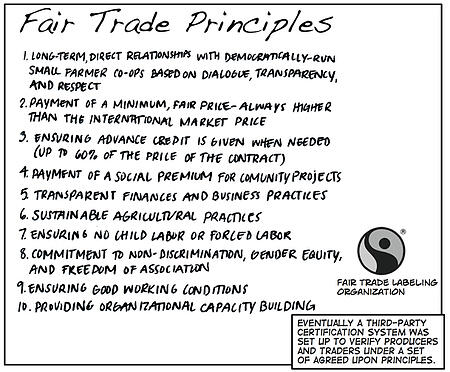
From The History of Authentic Fair Trade Comic Book
The emergence of fair trade certification
The FLO created Fairtrade Labeling Organizations (FLOCert) to oversee and manage certifications.
Just as with any food labeling system (organic, non-GMO, gluten free, kosher, etc.), the fundamental idea was to create a label for consumers to easily identify products that had been created and certified strictly following Fair Trade Principles .
big business and the breakdown of fair trade certification. one to many certifications
As Fair Trade grew, large corporations wanted to support and source from Fair Trade certified farms. However their demand exceeded what these, mainly small farms and farm collectives could produce. This caused tension In Fairtrade International. Some members wanted to work with plantations that could meet the larger demand. Others argued that plantations could not be certified mainly due to their ownership structure and that fundamental Fair Trade Principles could not be adhered to.
In 2011, Fair Trade Certified was formed to certify large farms, plantations and estates that could meet the demand of the corporations. Overtime Fairtrade International also began certifying large farms, estates and plantations.
Both certifications have systems in place that ensure economic and social benefits trickle down to the farmer workers from the larger plantations.
Eventually other certification systems evolved. Some - like Fair for Life were formed to uphold the original Fair Trade Principles. Others like Whole Trade were developed by large corporations and follow company specific principles.
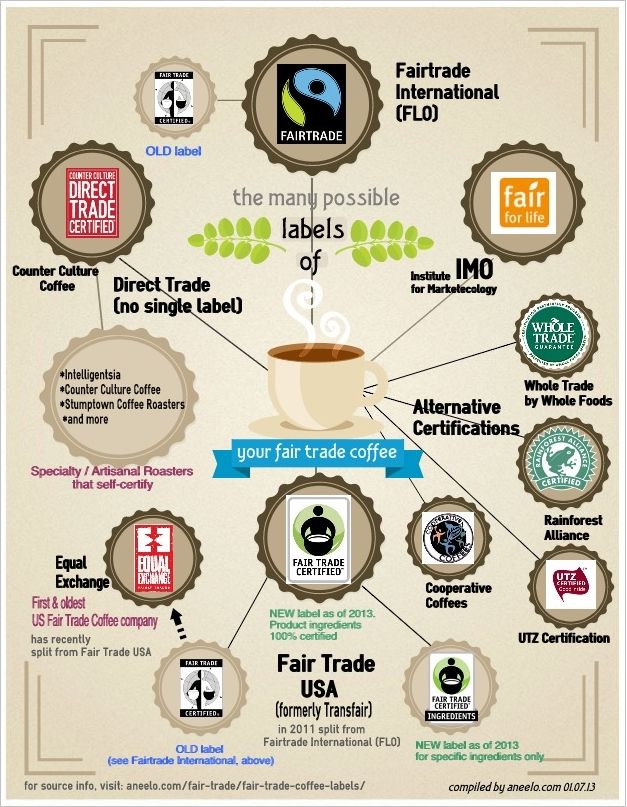
Credit:https://kaiserscience.wordpress.com/about/
And although some labels are better than others, many leaders in the movement, including Equal Exchange and Deans Beans, have eschewed the labels. Instead they have focused on building transparent and authentic supply chains that adhere to the original Fair Trade Principles.
What YOU Can Do!
Learn.
The best way to observe Fair Trade Month is to learn! The whole point of Fair Trade month is to spread awareness about worker conditions and increase the demand for responsibly sourced products.
The Fair World Project and the Equal Exchange Blog are two great resources with lots of excellent information. Equal Exchange's History of Authentic Fair Trade Comic Book is also a fun way to learn more. Many companies now have sections on their website (i.e, Taza Chocolate) that describe how they support Fair Trade.
Act.
Put your money where your mouth is and vote with your dollar. Look for Fair Trade products at local coffee shops and farmers’ markets. Boston Organics carries a lot of Fair Trade products in our add-on section and in honor of Fair Trade Month, all of our products from Equal Exchange are on sale!
Support small farmers and producers around the world by stocking up on chocolate, coffee, tea, and dried fruit!
Social activism has never been so delicious, but the best part of supporting Fair Trade is the knowledge that you're helping to create better living and working conditions for small-scale farmers and producers around the world.
*This post has been updated from it's original version.


